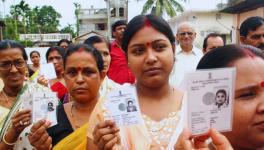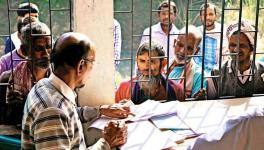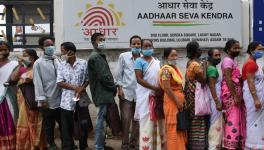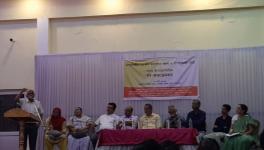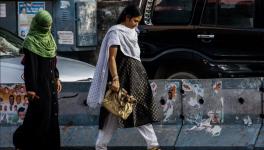Why Women MPs Should Speak for Muzaffarnagar Riot Victims
Strange or not, anything seems possible in the times we are living in. Recently in Uttar Pradesh, all but one of the cases registered in the Muzaffarnagar riots of 2013 failed to reach a logical conclusion in the courts of law. The main culprits accused in heinous crimes during those horrific riots are set to roam free.
Many women from the minority community were allegedly raped during those riots. Only a fraction of the complainants had come forward to register their complaints and testify. In Muzaffarnagar as well, the women who bore the brunt of violence had dared not speak out from fear of further attacks by the dominant community. Now, for even those who had dared file cases, the withdrawal of cases means that there will be no justice.
Contrast this with another recent development: The 17th Lok Sabha has 78 women Members of Parliament (MPs), the highest number of elected women representatives since Independence. This is a welcome development, but it also requires closer reflection. One form of appraisal would be to ask how meaningful this verdict is for ordinary women. Will women feel safer in their workplaces and homes? Both spaces have empowered women and have also become sites of their exploitation.
The deeper task, though, is to examine the role and responsibilities these women MPs have chosen to adopt. Realistically, they should strive to create circumstances that are amenable for women to be fearless. Women should be able to visit a police station and lodge a complaint or FIRs against their tormentors. The issue is, do the recent developments in the Muzaffarnagar cases give reason to harbour such hopes?
Today, crimes against women arise visibly from within politics — a territory that women MPs inhabit. What if the tormentor of an ordinary woman is a politically connected person? Will the election of 78 women MPs give women the grit required to take on political strongmen, the land mafia, and other powerful men who pose an existential threat to them? These are questions to ask ourselves and our MPs.
It is nobody’s case to bat against the welcome phenomenon of more women entering the Lok Sabha. Yet, that does not in itself satisfy the need for effective representation. Empowered women should feel bold enough to pinpoint their molesters and rapists unhesitatingly. One step toward making this possible would be if rapes and other forms of institutionalised violence are unwaveringly condemned by the women MPs. The developments in Muzaffarnagar and their silence on it contradict this possibility.
Time and again, India has witnessed horrific crimes against women during communal riots. There is a wide consensus among experts and criminologists that such heinous crimes are instrumental: women are made fodder to achieve political or other objectives. Violent mass crimes may serve to drive a wedge between communities or systematically crush the stirrings of assertion. Yet, women rarely get justice in such cases.
Is there a chance that this is what the 78 newly elected MPs will try and do? It appears that the women MPs have forgotten that at least 60 people lost their lives and more than 40,000 were displaced in the Muzaffarnagar riots. Some 502 cases were registered in its aftermath, in which 6,867 people were accused.
The other form of violence, lynching by mobs and hounding of critics, has also been ignored by women MPs so far. How, then, will their mere presence make Indian women ‘azaad’ enough to decide what to cook at home? It is very clear that whether men are elected as MPs or women, what matters more is that Parliament should have just, secular and accountable leaders who are within the reach of every constituent.
After all, no women parliamentarians have paid a visit to the homes of the victims of mob lynching or cared to hear out those women whose family members were brutally killed by mobs. The survivors of lynch mobs and their families live with severe injuries and bruises on their psyche. Yet, they get no support from the women MPs.
The widow of Tabrez Ansari from Jharkhand got no visits from MPs, which is a small, but meaningful, gesture of solidarity. Nor were the women MPs ever heard expressing sympathy for the 200-odd other families of victims of lynching. Thus, they do not even attempt to counter the culture of violence that allows this phenomenon to continue.
No women parliamentarians formed a group to visit the homes of Pehlu Khan or Mohd Akhlaq in Haryana and Uttar Pradesh, respectively. Rehbar Khan’s widow and children have been left to mourn his death alone in Rajasthan. This neglect has become a consistent feature of our democracy.
Our parliamentarians live behind high walls, with heavy security bandobasts, where the middle class and the poor cannot dare to intrude. The distance between the rulers and the ruled puts paid to the idea that we are living in a developed country.
Another haunting reality recently unfolded. The Rajasthan High Court acquitted six men who had spent 23 years in prison for a bomb blast that had taken place on the Jaipur-Agra highway in 1996. The court has ruled that the prosecution failed to prove that they had any link with the conspiracy for the blast.
What happens to these men, whom the system caged for so many years? What would freedom mean for them? One of the freed men, the moment he returned home, visited the grave of his father and cried helplessly. That sight is a burden for anybody who watches it, for it is like a testament to the cruelty inflicted on scores of such young men. This was no isolated case either. The state has repeatedly set men “free” after they have spent decades in jail, without compensation or apology.
The entire state of Assam is terrified by the upcoming citizenship verdict under the National Register of Citizens process. People are being accused of crimes they didn’t commit and jailed with impunity. But the perpetrators of crimes committed during riots are being released without punishment. What does it say about our women MPs that one feels compelled to remind them that they have scores of issues to attend to? That is perhaps for the voter to decide.
Humra Quraishi is a columnist and writer based in Delhi. The views are personal.
Get the latest reports & analysis with people's perspective on Protests, movements & deep analytical videos, discussions of the current affairs in your Telegram app. Subscribe to NewsClick's Telegram channel & get Real-Time updates on stories, as they get published on our website.











